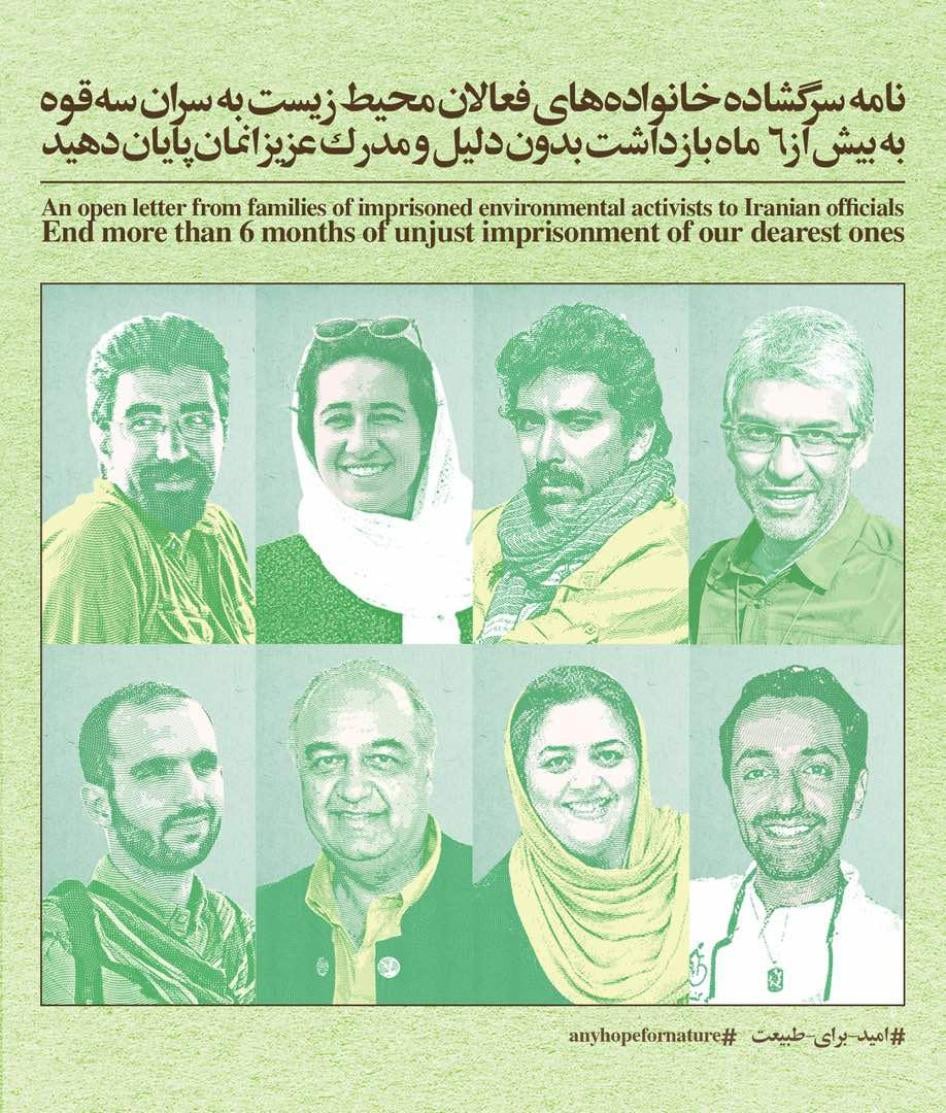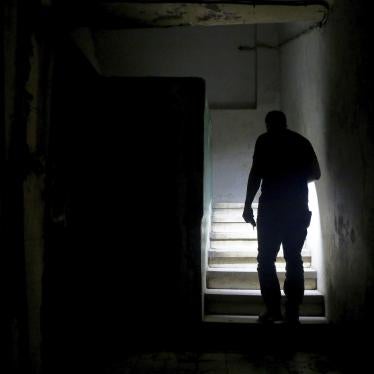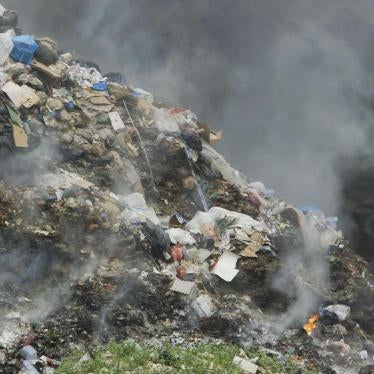(Beirut) – An Iranian revolutionary court has sentenced at least six environmental experts detained since January 2018 after an unfair trial where the defendants apparently could not see the full dossier of evidence against them, Human Rights Watch said today. The court informed the detainees on November 20, 2019 that they had been convicted of “collaborating with the enemy state of the United States” and sentenced to prison terms ranging from 4 to 10 years.
On November 20, Gholamhossein Esmaili, the judiciary’s spokesman, told Mehrsnews agency that branch 15 of Tehran’s revolutionary court of first instance had issued its verdicts in the case. A source who prefers to remain anonymous for fear of reprisal told Human Rights Watch that branch 15 had informed six detained conservation experts who are members of the Persian Wildlife Heritage Foundation (PWHF), a local group focused on preserving biodiversity, especially Asiatic Cheetas, of the verdicts against them on November 20. The authorities have not allowed the accused to read the full indictment or the dossier of evidence against them, the source added.
“After the authorities held these environmental experts from the Wildlife Heritage Foundation for 20 months in pretrial detention, Iran’s revolutionary court doubled down by sentencing them to up to 10 years in apparently without allowing them to see all of the evidence,” said Michael Page, deputy Middle East director at Human Rights Watch. “Such unjust sentences would be yet another hallmark of the abusive nature of Iran’s revolutionary courts.”
The court sentenced Niloufar Bayani and Morad Tahbaz to 10 years in prison, Houman Jokar and Taher Ghadirian to 8 years, and Amir Hossein Khaleghian and Sepideh Kashani to 6 years. It is not clear whether authorities have informed Sam Rajabi and Abdolreza Kouypabeh, two other detained members of the group, of their verdicts.
The authorities transferred the six members to the revolutionary court in Moalem street in Tehran on November 20 and informed them of their sentences without the presence of their lawyers, the source said. In the case of at least one detainee, the authorities only orally communicated the verdict and refused to show them the verdict. The court has also ordered Bayani to “return illicit funds” of US$360,000. The amount was calculated by multiplying Bayani’s latest annual salary from the United Nations Environment Programme, where she worked prior to joining the wildlife group, by her six years of work experience working there, the source said.
The Revolutionary Guards’ Intelligence Organization arrested seven of the defendants on January 24 and 25, 2018, as well as Kavous Seyed Emami, an Iranian-Canadian university professor. The authorities arrested Kouhpayeh, who is being tried with seven other activists, on February 25. On February 10, 2018, family members of Seyed Emami reported that he had died in detention in suspicious circumstances. Iranian authorities claimed that he committed suicide, but they have not conducted an impartial investigation into his death and had banned his wife from traveling until October 2019. On October 24, 2018, Abbas Jafari Dolatabadi, the Tehran prosecutor, said at a news conference that four detainees faced the charge of “sowing corruption on earth,” which includes the risk of the death penalty, claiming that the activists were “seeking proximity to military sites with the cover of the environmental projects and obtaining military information from them.”
The trial of the experts began in January 2019 but was halted in March. The trial resumed briefly in June but was halted again until it was concluded on November 2. Bayani had interrupted a trial session in February, saying that the defendants had been under psychological torture and were coerced into making false confessions.
On October 14, 2019, Esmaili, the judiciary spokesman, told Iranian Students News Agency (ISNA) that the authorities were changing the corruption on earth charge to “collaborating with the enemy states of the US and Israel to spy in favor of CIA and MOSAD.” During the trial the judiciary officials did not allow the detainees to choose their own lawyer, forcing them to be represented by lawyers who were pre-approved by the judiciary. The list that was announced in June 2018 did not include any human rights lawyer.
Over the past two years, several senior Iranian government officials have said that they did not find any evidence to suggest that the detained activists are spies. On May 22, 2018, the Iranian Student News Agency (ISNA) reported that Issa Kalantari, the head of Iran’s Environmental Institution, said during a speech at a biodiversity conference that the government had formed a committee consisting of the ministers of intelligence, interior, and justice and the president’s legal deputy, and that they had concluded there was no evidence to suggest those detained are spies.
On February 3, 2019, Mahmoud Sadeghi, a member of parliament from Tehran, tweeted that according to the information he has received, the National Security Council headed by President Hassan Rouhani also did not deem the activities of the detained conservation activists to be spying.
“The authorities are announcing this court verdict during a government internet shutdown designed to hide a vicious crackdown against Iranian protestors,” Page said. “The court’s cowardly decision to do this suggests they fear scrutiny of their record in putting these environmental experts on trial.”









